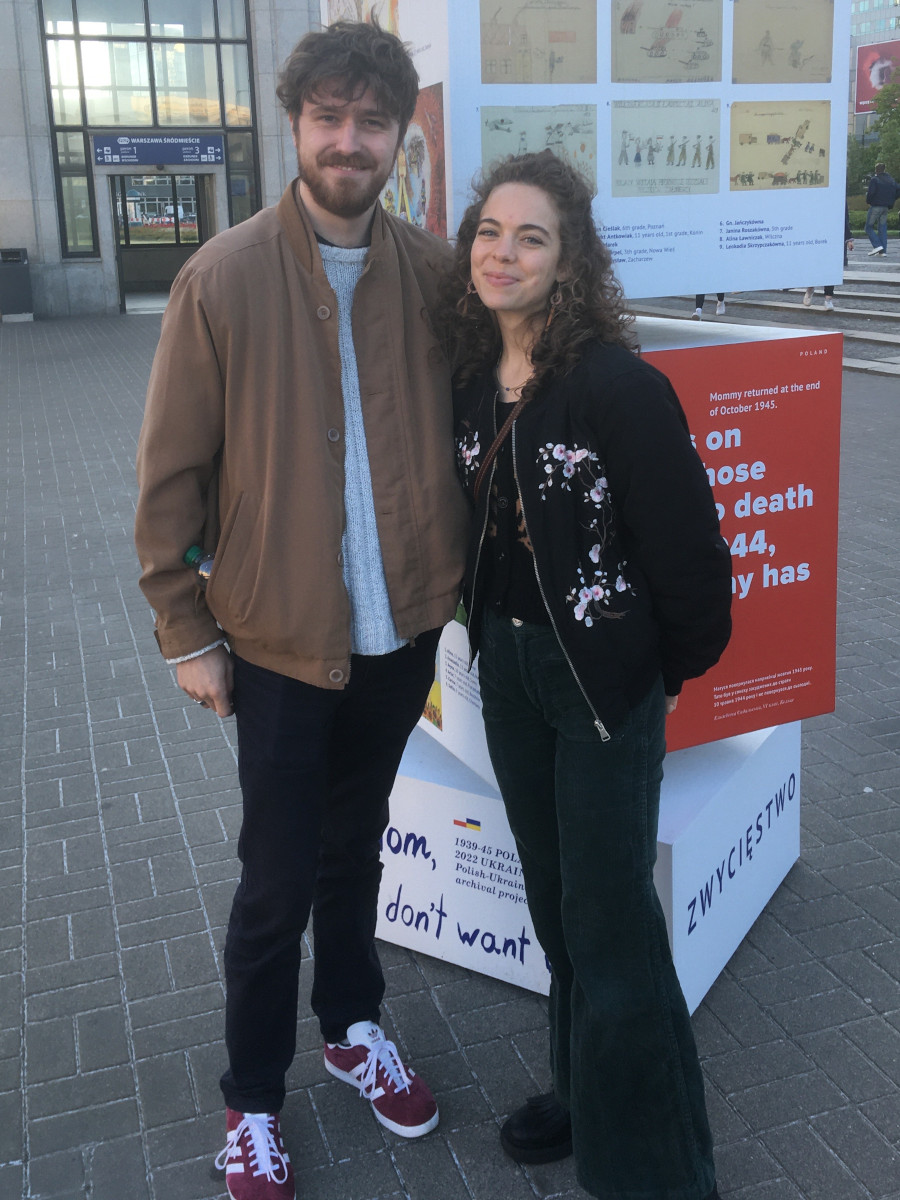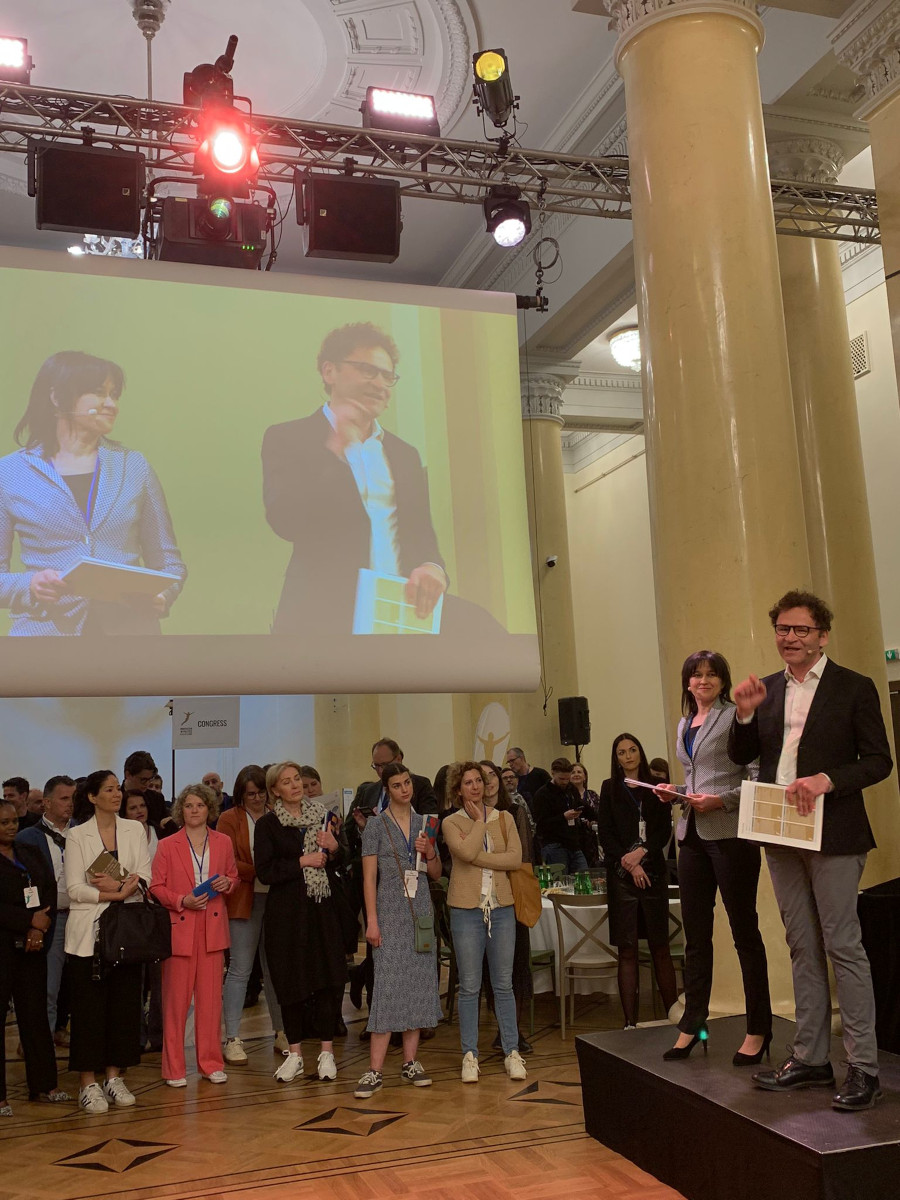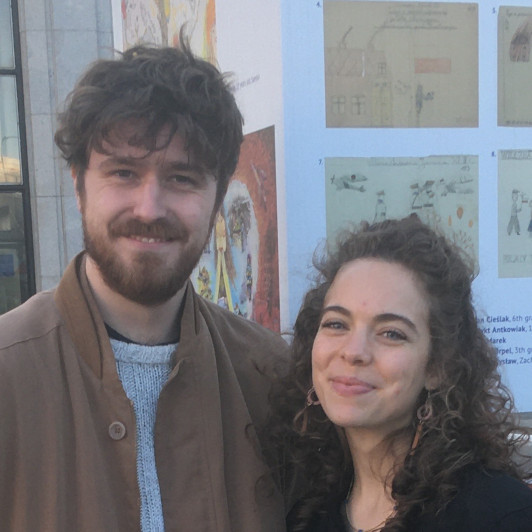Did the best team win?
Reporting from the Innovation in Politics Awards in Warsaw
8 June
The IYTT partnership with the Innovation in Politics Institue is a fruitful one and we were thus very honoured to be invited to the prestigious Innovation in Politics Awards on 11 May in Warsaw, Poland. Youth Fellows Federica Baggio and James Mottram report from their trip, where they talked to people in the streets and wondered about what innovation in politics actually mean and whether the best team really won.
Warsaw has a political history more complicated and troubled than most cities, particularly in 20th century Europe. Having been occupied by the Nazis, witnessing one of the most incredible uprisings against them and then hosting the round table talks that brought an end to Soviet control of Poland, the hosts of the Innovation in Politics Awards 2023 emphasised the credentials of the city to put on the event. Support was also, importantly, extended to victims of the war in Ukraine.
The day before the Innovation in Politics Awards, we went out onto the streets of Warsaw, just outside the venue of the conference, to run an Open Chair Democracy Talk (OCDT). Though language was occasionally a barrier, we came away with some interesting insights into how people felt about democracy in Warsaw. It’s persistently used as an example of a state experiencing democratic backsliding, but people in Warsaw saw the problem more in terms of wide spreading distrust and scapegoating minorities in debates.

During the conference, we ran OCDTs again but this time with local politicians from cities like Brussels and Rybnik, youth service workers from cities such as Helsinki and Sao Paulo and national politicians associated with major parties in Sweden. Democracy was perceived through much more academic and theoretical concepts within the conference, as expected. Where ‘freedom’ was a constant both inside and outside political circles, on the one hand the people of Warsaw were either likely to associate democracy with their culture and “way of life”, or as an idea “for stupid people”, unable to listen to their scream for change. On the other hand, inside the conference, democracy was associated with positive and loftier concepts, such as “transparency”, “participation” and “opportunity”.
Making people feel more powerful over their own lives emerges as a principle in many of the policy proposals in the Handbook, which is why it’s such an important question for an OCDT. Asking a politician what they feel would make them more powerful as a citizen is an opportunity for them to set out a clear message of why they’re in politics and what they’re pursuing. It was a relief, then, that the answers from local politicians in the conference did not differ enormously from the people we spoke to outside the venue: political knowledge, education (of those in powerful positions and of citizens) and prospects. It was encouraging to receive positive feedback about a range of IYTT policy proposals that aim to address these areas not just from local politicians, some of whom expressed a real excitement at the idea of a partnership, but also from people in Warsaw, who wished us luck trying to get through to the politicians. The national politicians favoured their inclusion into the corridors of power as a means of increasing their power as a citizen (make of that what you will).

Innovative ideas and excitement did truly fill the venue and the passion and conviction from the finalists was clear. The list of amazing campaigns is too long to make here so I will mention some notable groups: Rexcatering from Spain, who take leftover food from canteens and fills free vending machines with the food for anyone to take; Sophia, the world’s first chatbot for survivors of domestic abuse from Switzerland and Megafon from Brussels, who were so engaging to speak to over lunch. Coming away from the event, it is certain that IYTT has so many potential partners to reach out to and opportunities to refine our ideas by speaking to those who are already implementing our policy proposals.
There were two things that left us confused or even concerned. Firstly, the winner of the Party Innovation award seemed to go against everything that the IYTT is trying to achieve. Their goal of Policy Sprint, from Switzerland, was to remove debate and contestation from politics to make policy making faster, more efficient and more technocratic, a process that excludes people from decision making and influencing politics. But this was in total accordance with the second problematic aspect of the conference: the panel on the future of political parties led by national politicians from Ghana, Sweden and the Netherlands. Innovation may have been the goal of the local politicians, but it seemed the opposite for the national politicians. Populism was condemned as an almost incomprehensible threat to the stability of major old parties. They were puzzled as to why the membership numbers of mainstream political parties had fallen despite the continental commitment to a neoliberal austerity politics, making education job preparation and emphasising the ‘benefits’ of technocracy. They said “we have one mouth but two ears and therefore should listen more”, but it’s clear that demands for change have fallen on deaf ears for these supposedly sensible politicians.
IYTT can certainly find willing, innovative and inspiring partners at the local level of politics to consider our policy proposals but connecting with the national level may take a little while longer, hopefully they’ll be less condescending next time.
James Mottram & Federica Baggio
Youth Fellows

